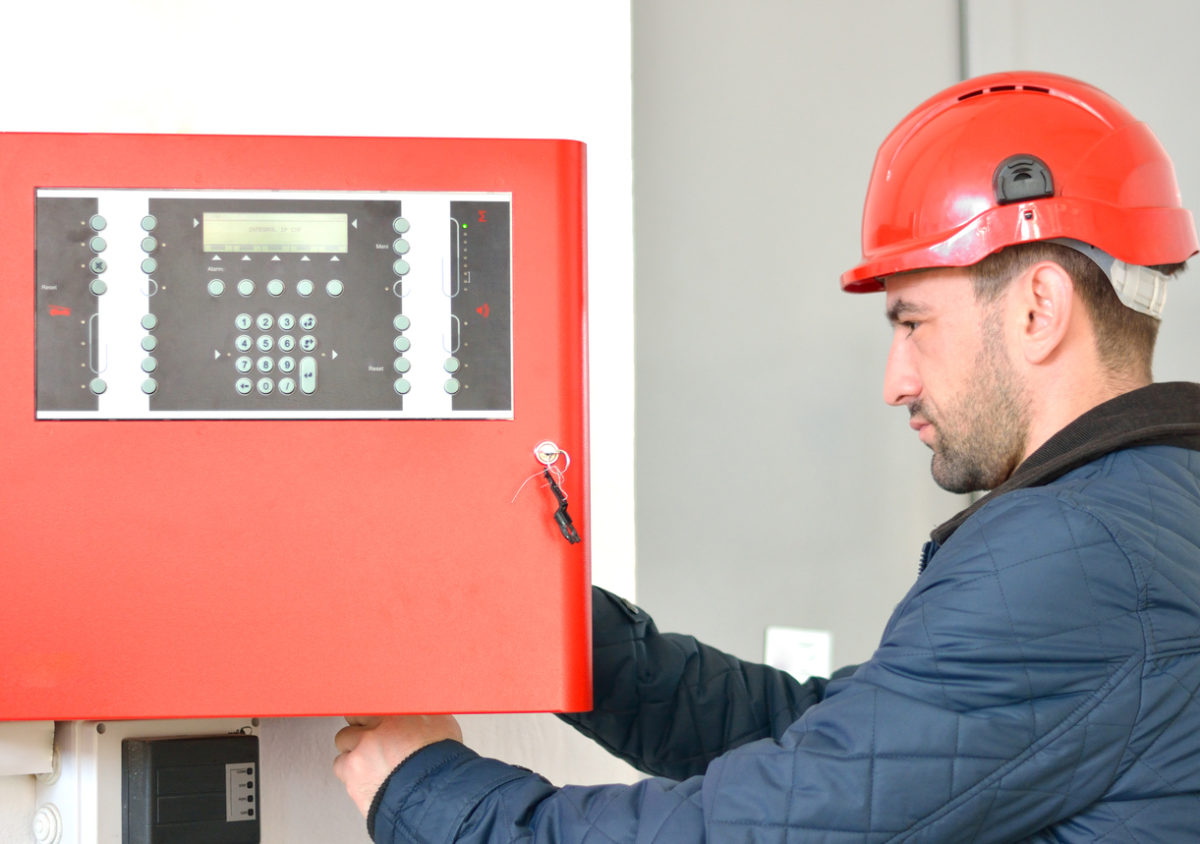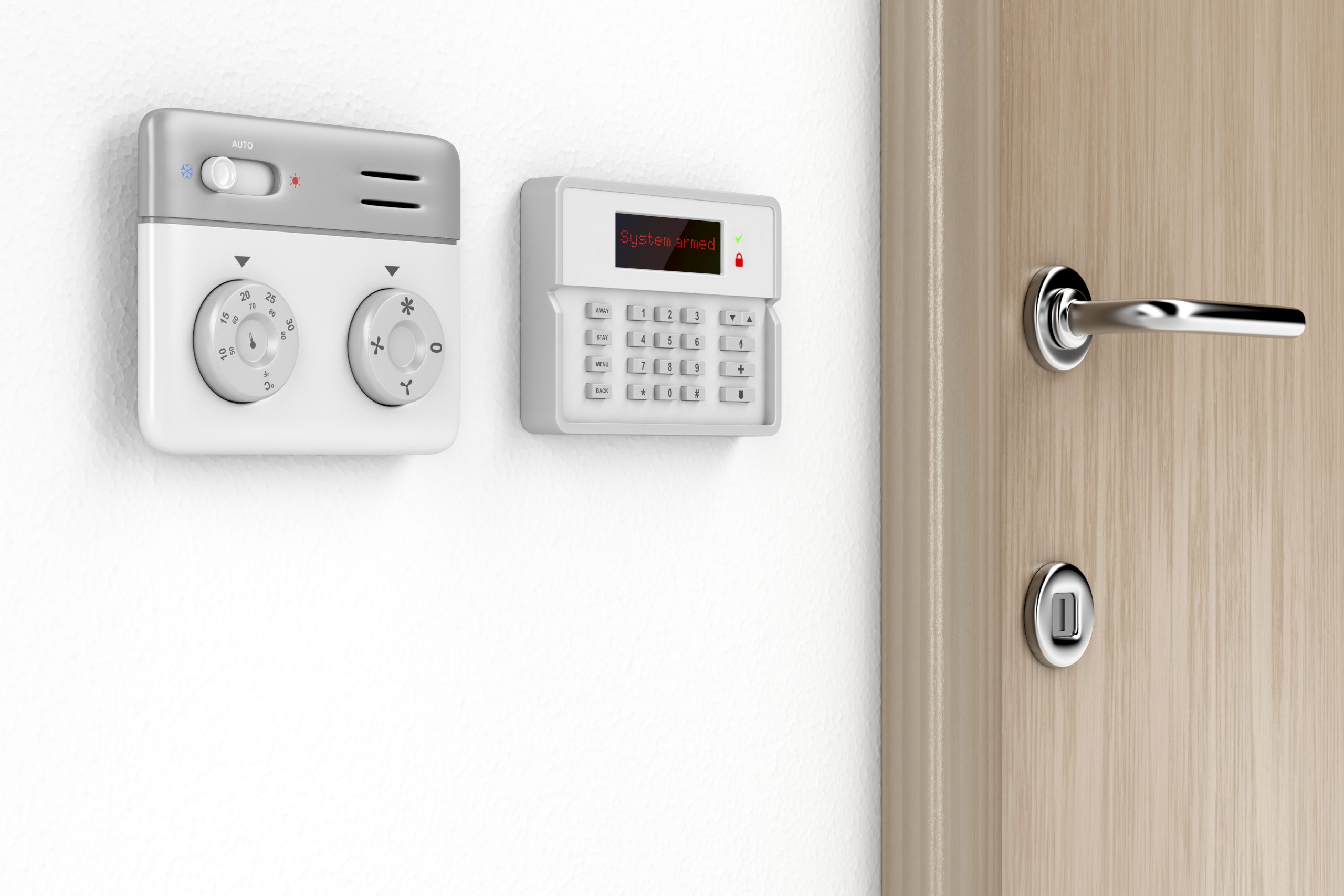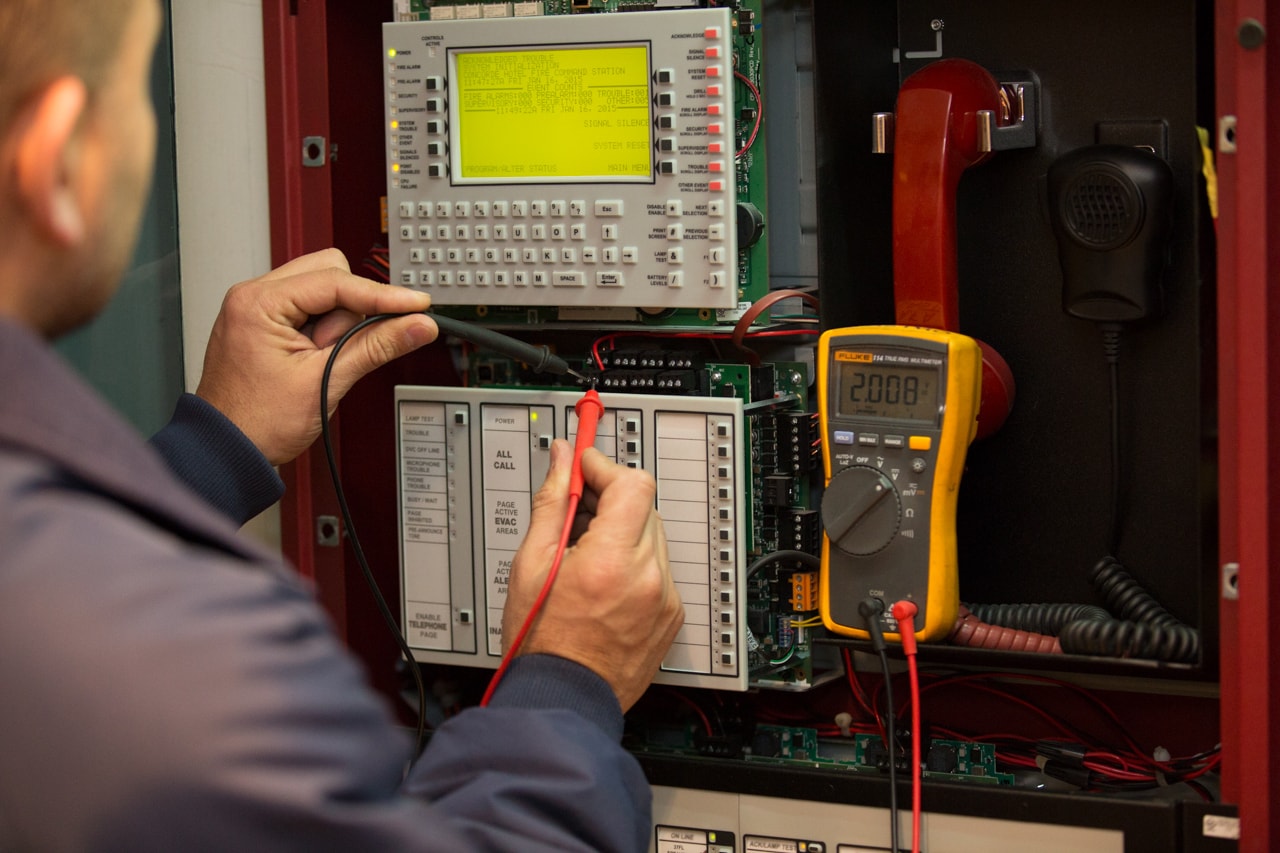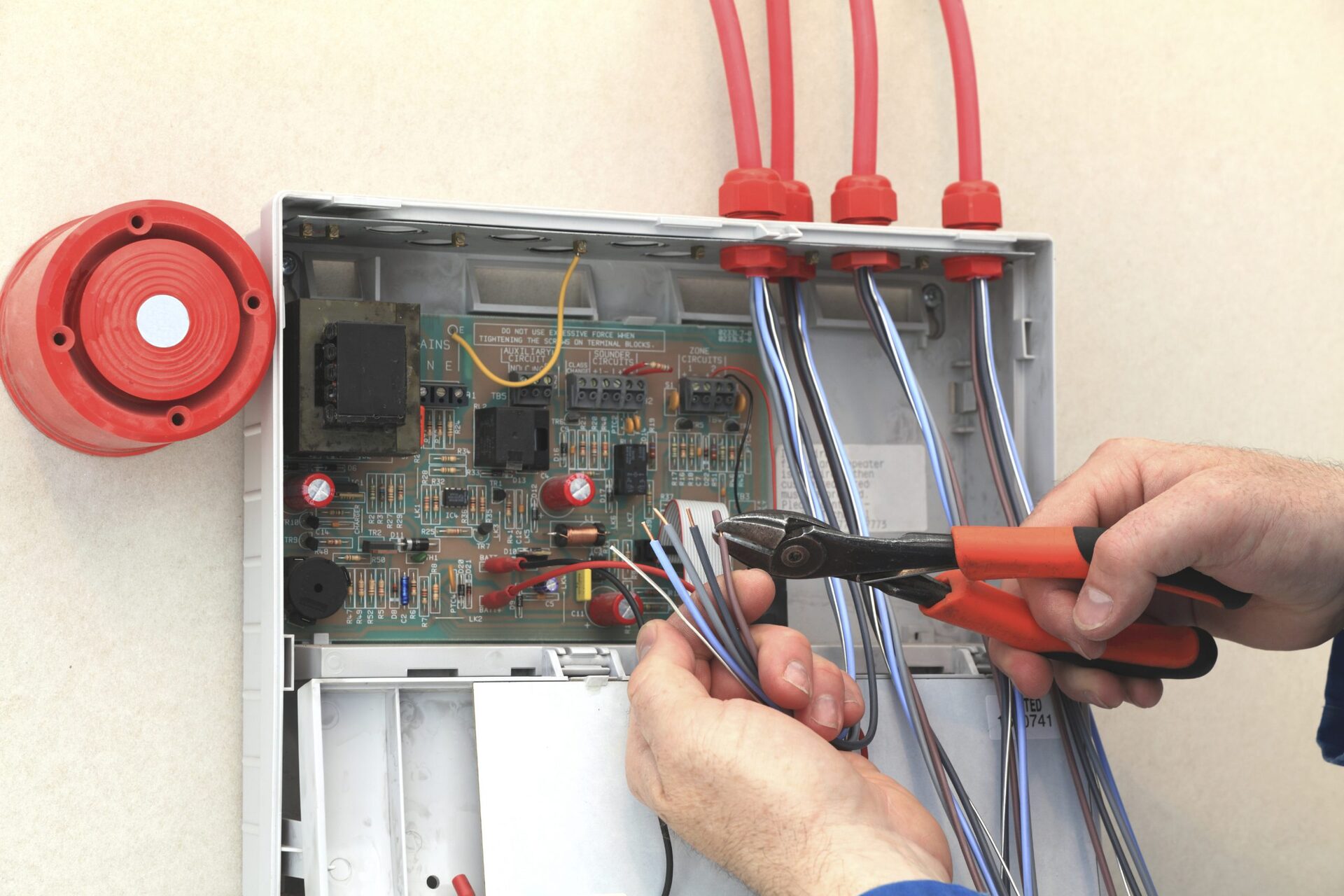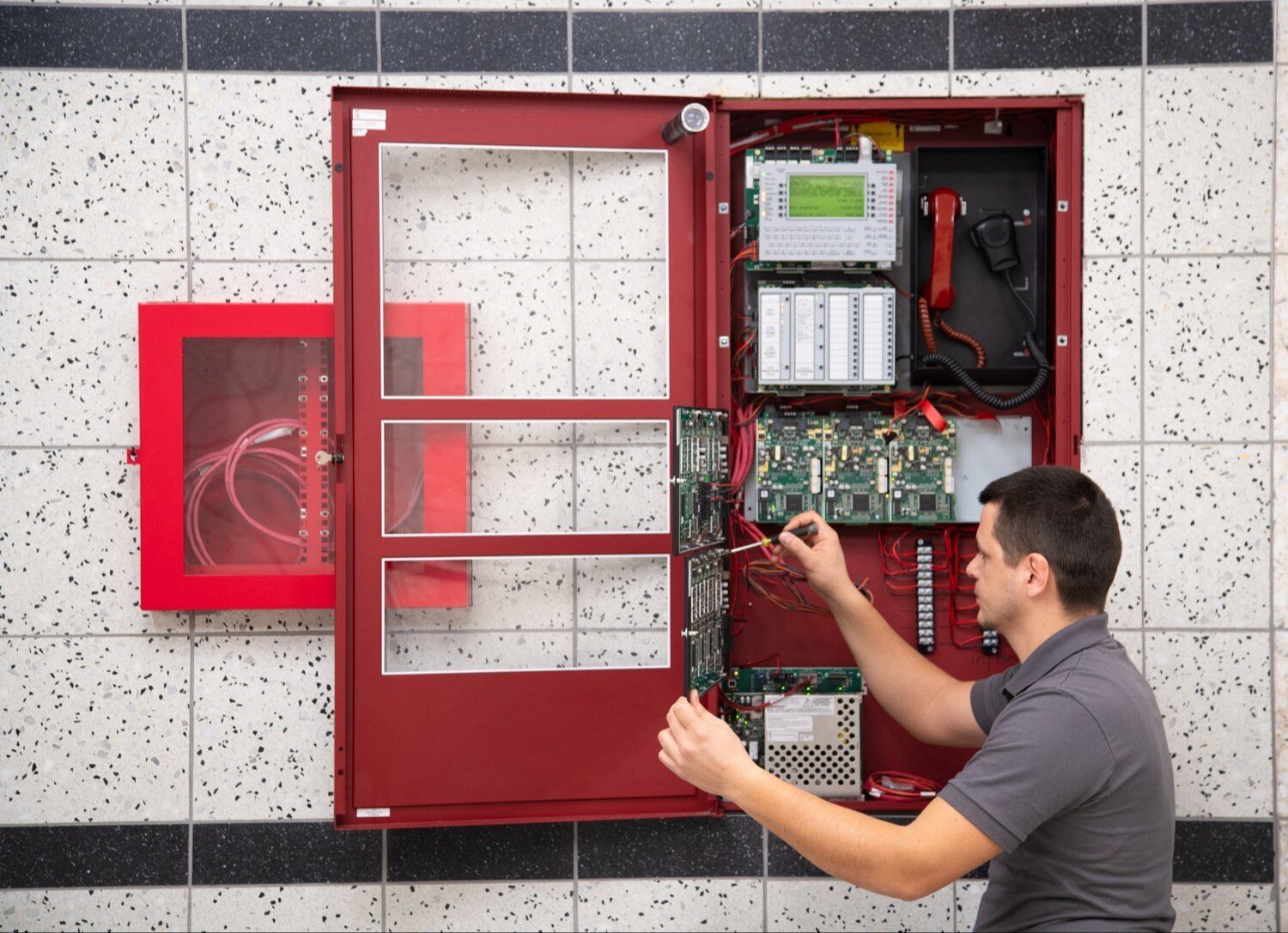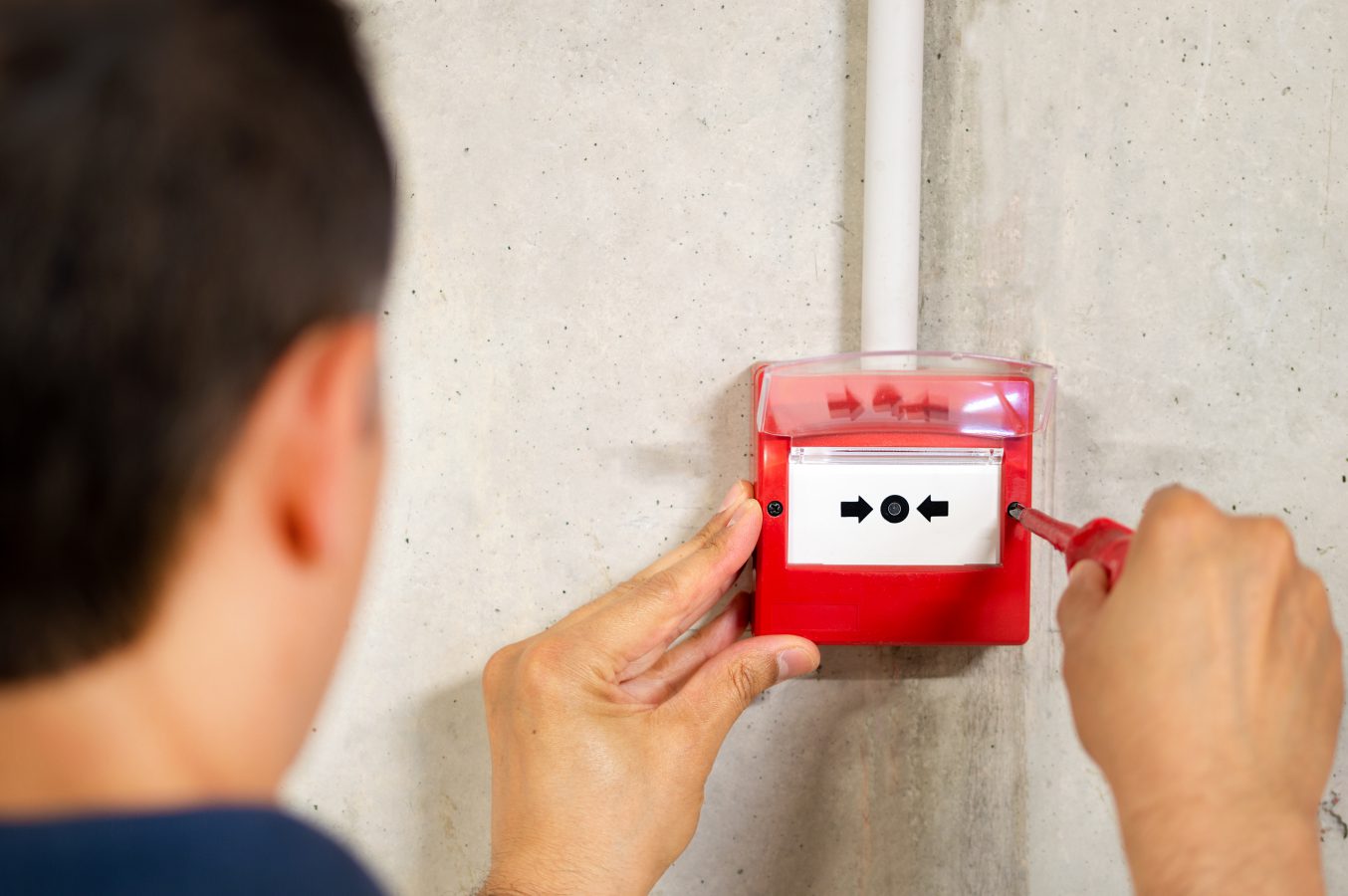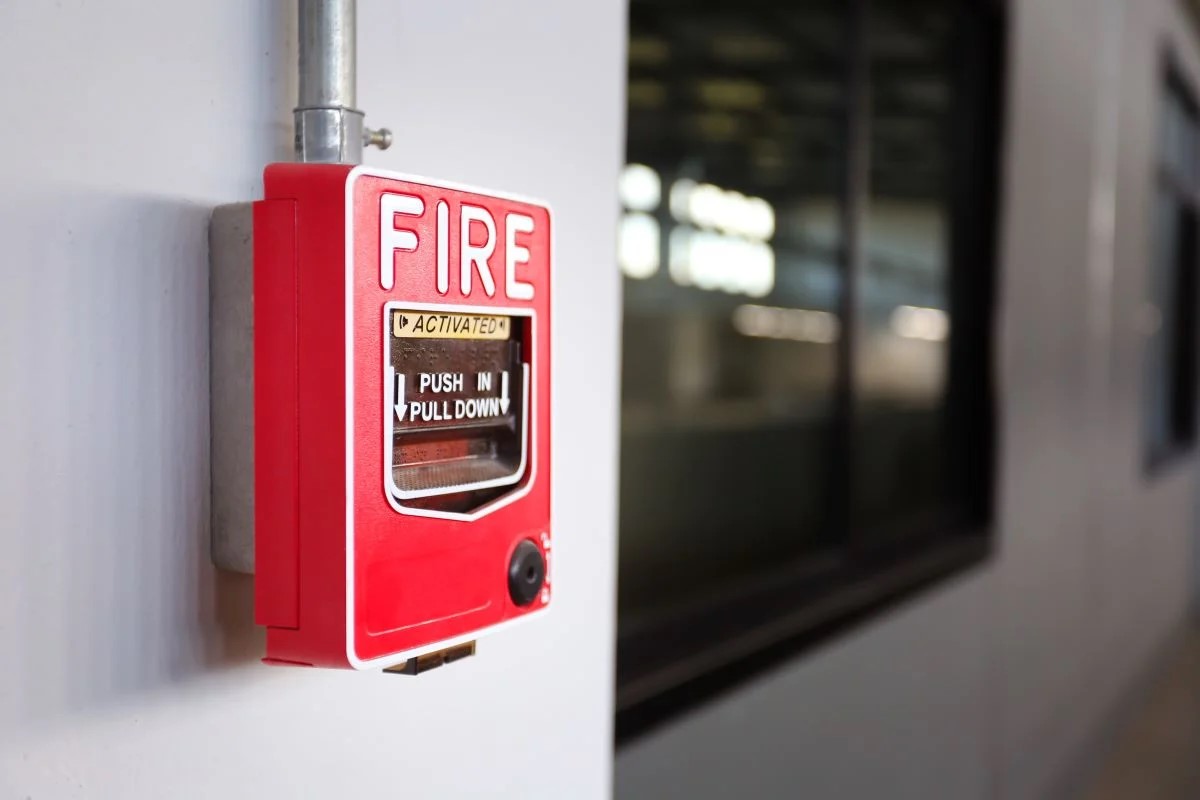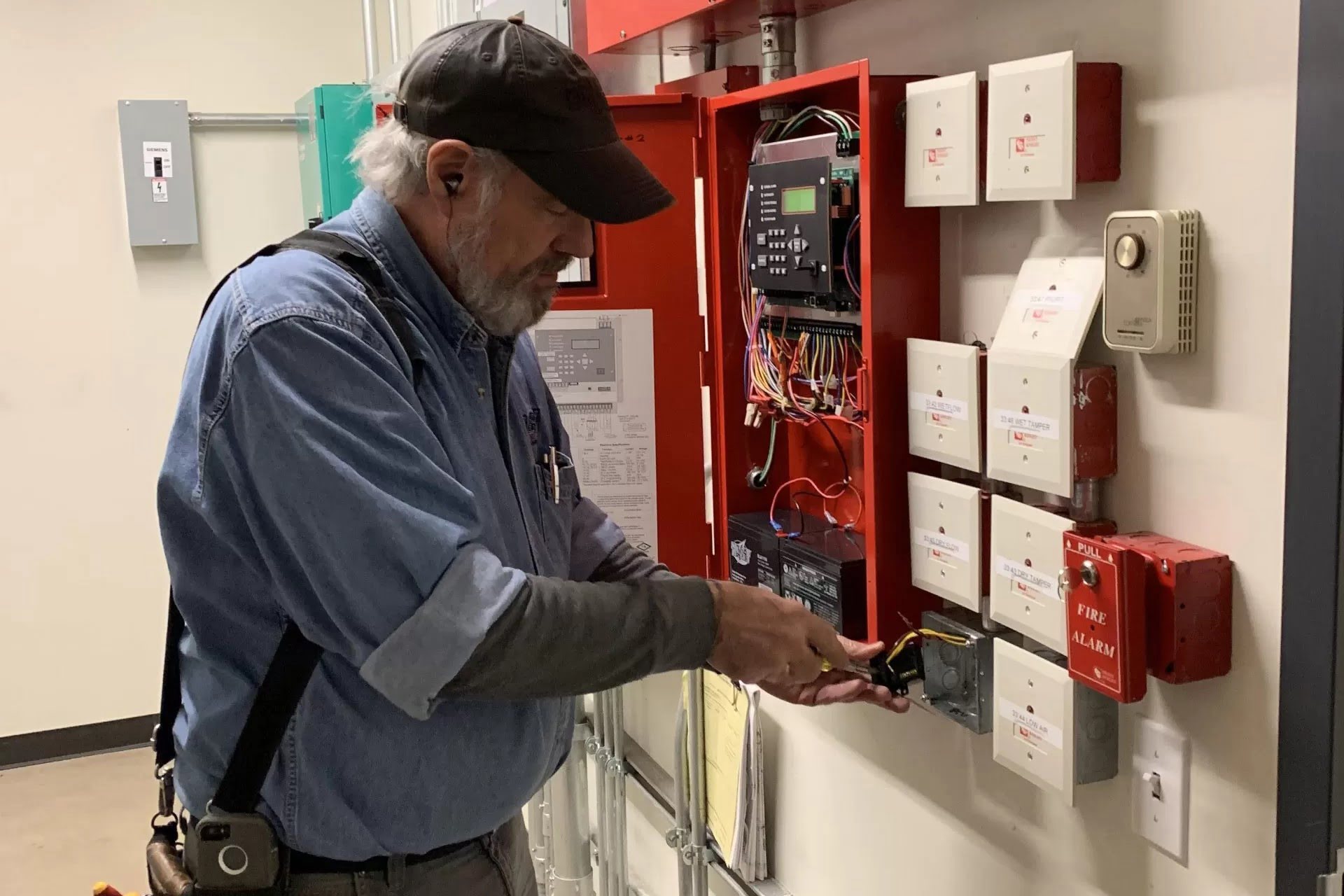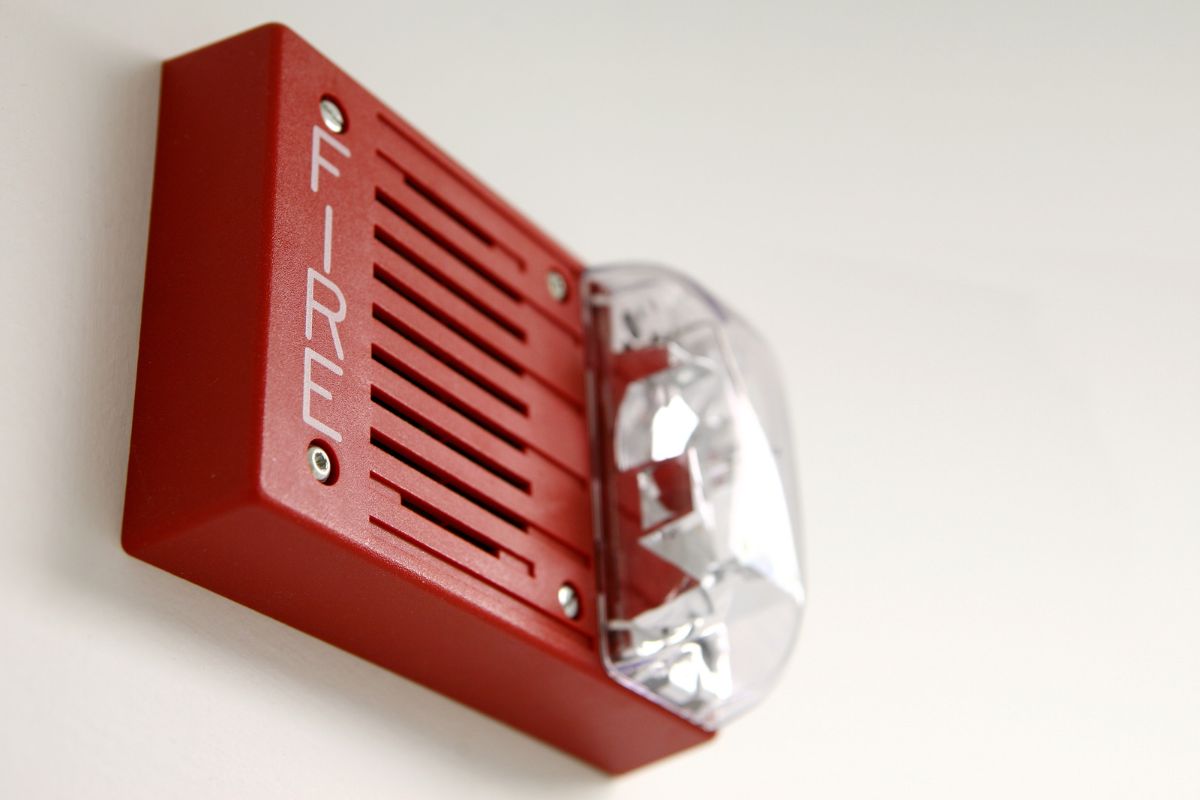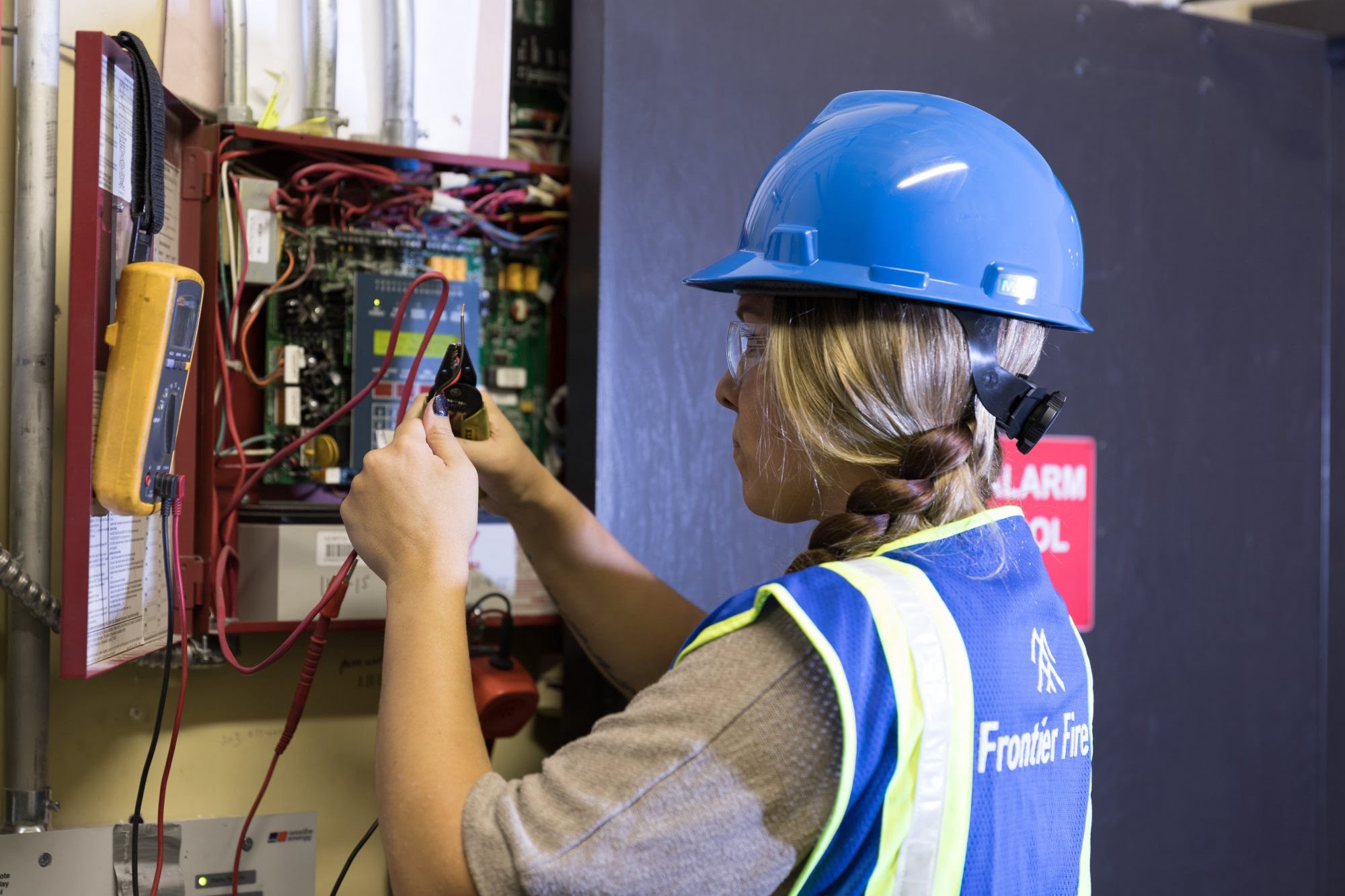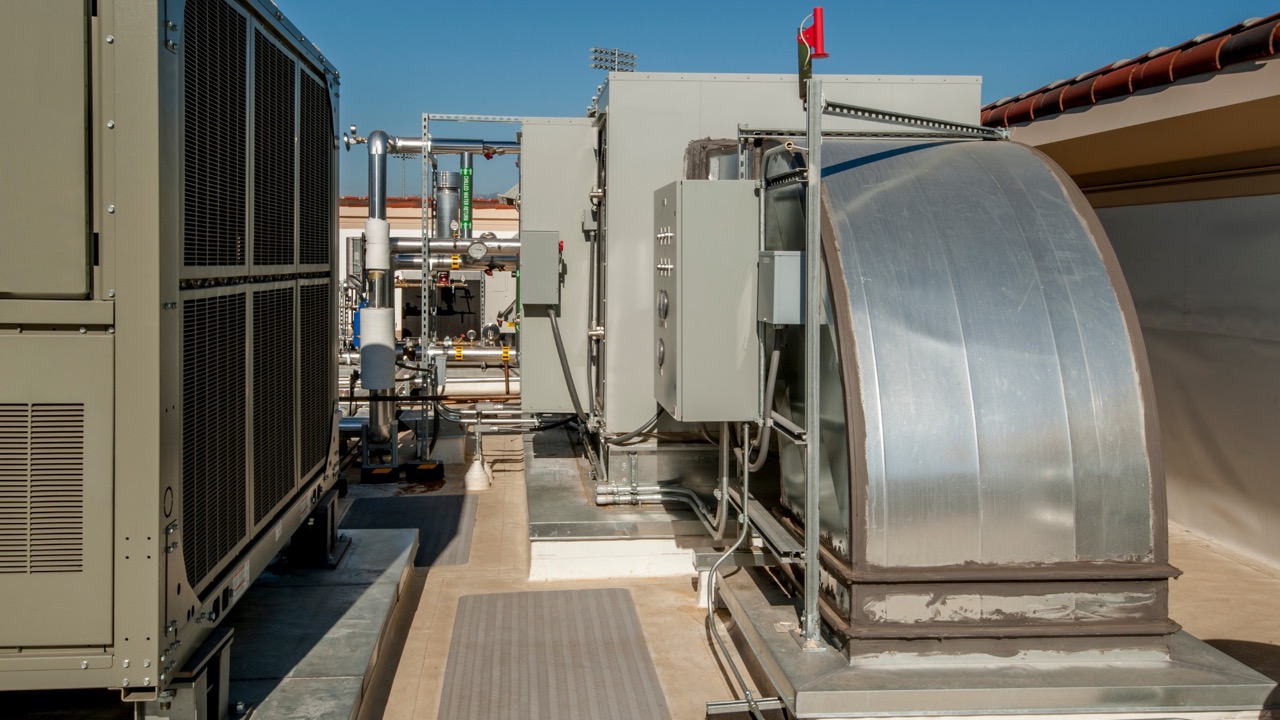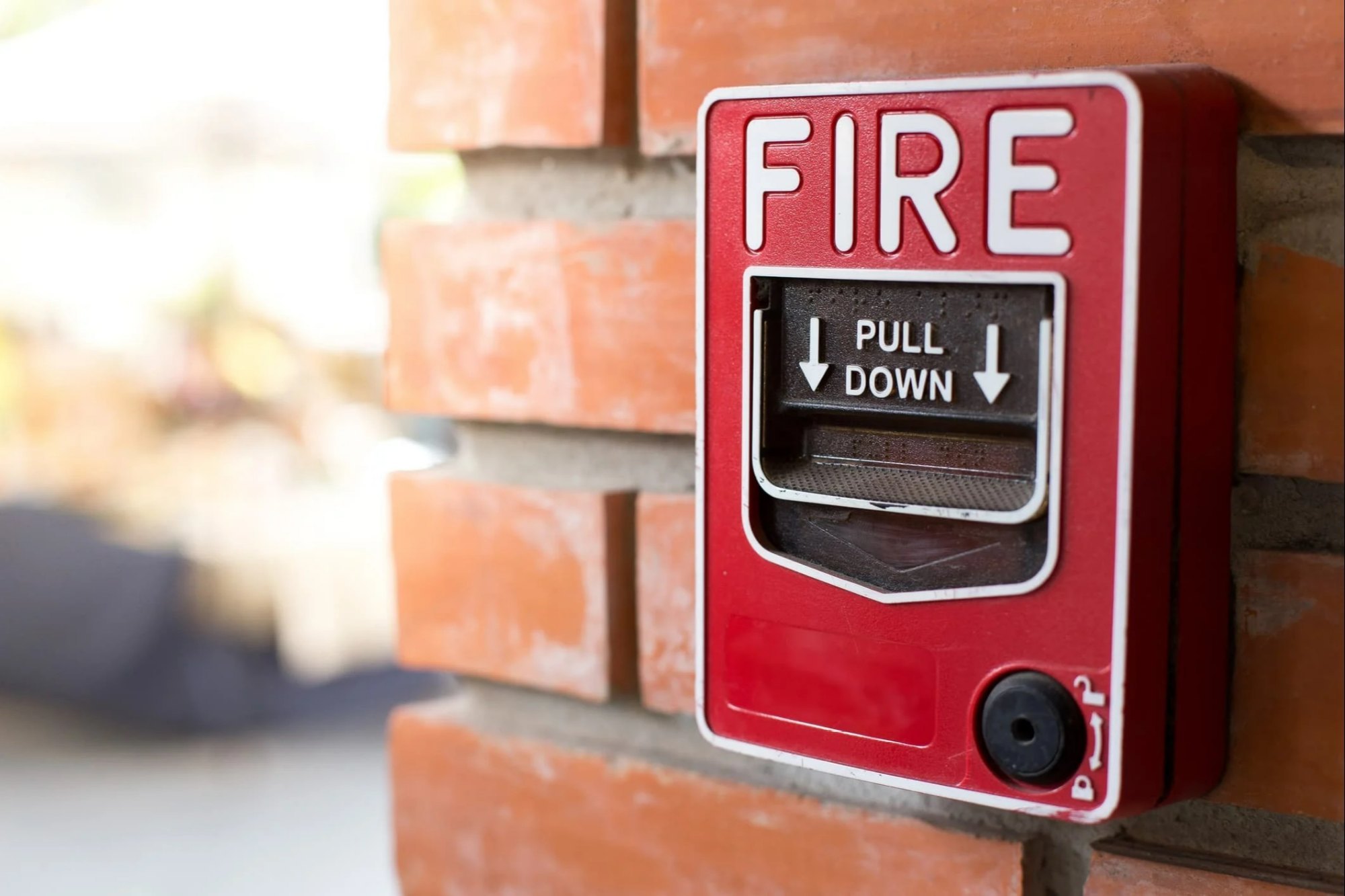Home>Home Security and Surveillance>What Are The 5 Types Of Commercial Fire Alarm Systems
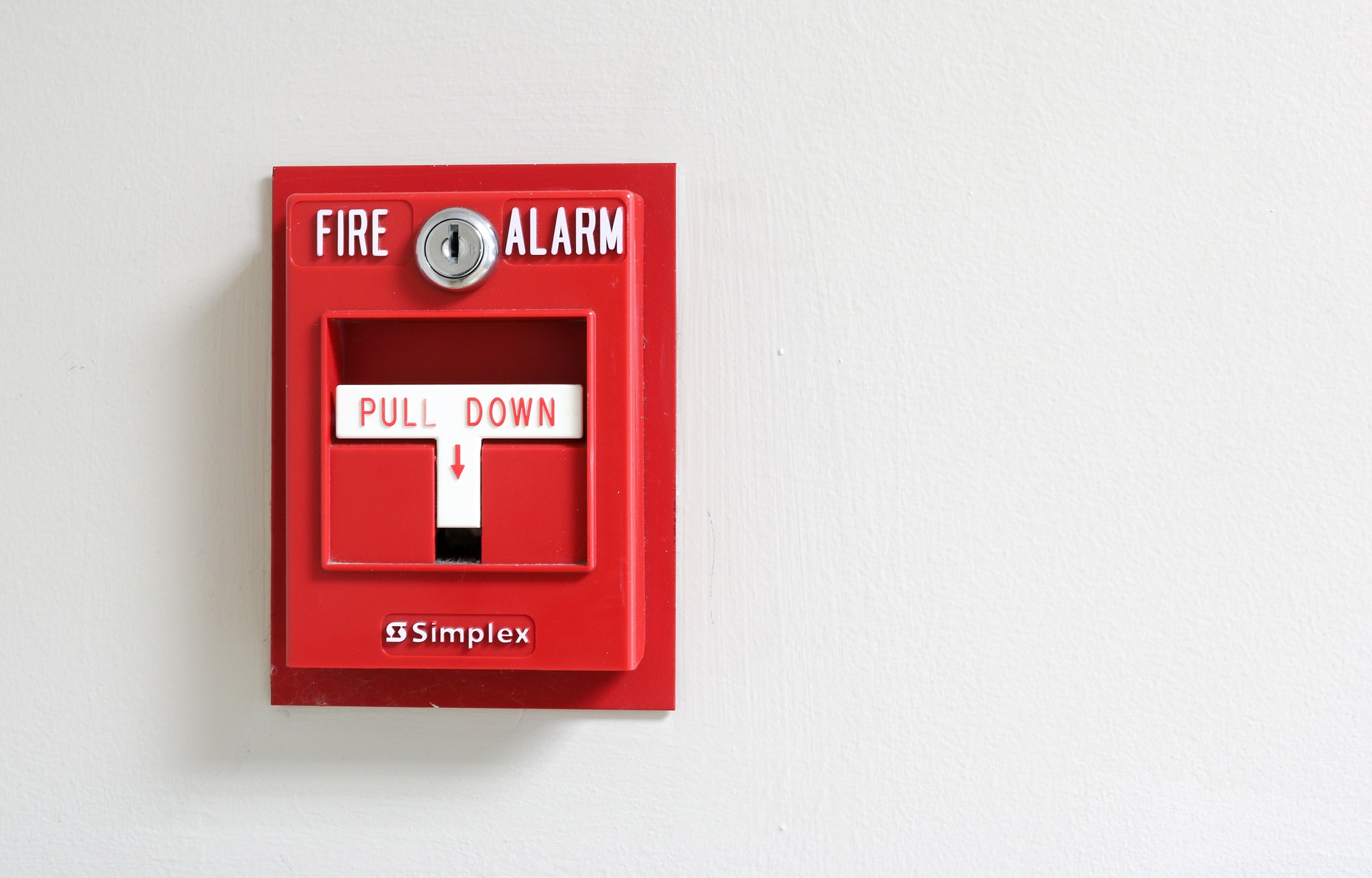

Home Security and Surveillance
What Are The 5 Types Of Commercial Fire Alarm Systems
Modified: March 6, 2024
Learn about the five types of commercial fire alarm systems and ensure your home security and surveillance with expert advice and recommendations.
(Many of the links in this article redirect to a specific reviewed product. Your purchase of these products through affiliate links helps to generate commission for Storables.com, at no extra cost. Learn more)
Introduction
Welcome to the world of commercial fire alarm systems! When it comes to protecting your business and the people within it, having a reliable fire alarm system is of utmost importance. In the event of a fire, these systems serve as a vital tool in alerting occupants and initiating a response to minimize damage and promote safety.
But with the wide range of options available in the market, it can be overwhelming to choose the right fire alarm system for your commercial property. Fear not, as we are here to guide you through the different types of commercial fire alarm systems, their features, and benefits.
Before diving into the specifics, it’s important to understand that commercial fire alarm systems are designed to cater to the needs of larger and more complex premises, such as office buildings, retail stores, warehouses, manufacturing facilities, and more. These systems are typically more advanced and offer greater coverage compared to residential fire alarm systems.
Now, let’s explore the various types of commercial fire alarm systems:
Key Takeaways:
- Conventional fire alarm systems are affordable but may struggle to pinpoint the exact location of a fire. They’re great for small to medium-sized businesses, offering basic fire detection and warning capabilities.
- Addressable fire alarm systems provide quick and accurate fire detection, making them ideal for larger commercial properties. They offer advanced functionality and specific information about the location of a fire.
Conventional Fire Alarm Systems
Conventional fire alarm systems are one of the most commonly used types of fire alarm systems in commercial settings. These systems are based on a simple principle of dividing the building into multiple zones or areas, with each zone connected to a dedicated circuit.
Each circuit is connected to a fire alarm control panel, which allows for detection and monitoring of fire in specific areas. When a smoke detector or heat detector within a particular zone is triggered, the control panel identifies the zone and activates the corresponding alarm devices, such as sounders and strobes, within that zone.
One of the key advantages of conventional fire alarm systems is their affordability. These systems are relatively less expensive compared to other advanced options, making them a cost-effective choice for small to medium-sized commercial properties.
However, conventional fire alarm systems have limitations when it comes to pinpointing the exact location of fire within a zone. Since each zone covers a relatively large area, it may take some time to identify the precise location of the fire.
Additionally, due to their wiring-based structure, conventional fire alarm systems can be more challenging to install, especially in existing buildings. The need for dedicated wiring for each zone requires extensive labor and might result in disruption to the operations of the business during installation.
Despite these limitations, conventional fire alarm systems are still a popular choice for many commercial properties, as they provide basic fire detection and warning capabilities at an affordable price point.
Addressable Fire Alarm Systems
Addressable fire alarm systems are a more advanced option compared to conventional fire alarm systems. These systems provide more precise information about the location of fire within a commercial property.
Addressable fire alarm systems work by assigning a unique address to each detector, module, and control device within the system. This allows for individual identification and communication with each component of the system.
When a fire is detected, the addressable fire alarm system immediately pinpoints the exact location of the activated detector. This information is then displayed on the control panel, providing quick and accurate information to the building occupants and emergency responders.
One of the key advantages of addressable fire alarm systems is their ability to provide timely and specific information about the fire. This can significantly enhance the response time and effectiveness of evacuation and firefighting efforts.
Moreover, addressable fire alarm systems offer advanced features such as programmable display panels, which provide detailed information about the status of each detector, as well as the ability to interface with other building automation systems.
Installation of addressable fire alarm systems can be more complex compared to conventional systems due to the need for programming and addressing each component. However, these systems are compatible with existing wiring infrastructure, reducing the need for extensive rewiring.
While addressable fire alarm systems are more expensive than conventional systems, they offer enhanced functionality and capabilities, making them an ideal choice for larger commercial properties and those with complex layouts.
When choosing a commercial fire alarm system, consider the 5 types: conventional, addressable, intelligent, wireless, and aspirating smoke detection. Each type has its own unique features and benefits, so it’s important to choose the one that best fits your specific needs.
Analog Fire Alarm Systems
Analog fire alarm systems are another type of advanced fire alarm system commonly used in commercial settings. These systems utilize analog technology to provide a high level of accuracy and reliability in detecting and alerting about fires.
Analog fire alarm systems work by continuously monitoring the environment for any changes in conditions that may indicate the presence of a fire. These systems use detectors that measure various parameters such as smoke, heat, and gas levels.
Unlike conventional and addressable fire alarm systems, analog systems do not rely on preset threshold values for triggering an alarm. Instead, they analyze the collected data and compare it to preprogrammed patterns and algorithms to determine the presence of a fire.
One of the key advantages of analog fire alarm systems is their ability to provide early detection and reduce false alarms. The continuous monitoring and analysis of environmental conditions enable these systems to detect even subtle changes that may indicate a fire, allowing for quicker response and minimizing false alarms.
In addition, analog fire alarm systems offer advanced features such as remote monitoring and diagnostics, which allow for real-time monitoring and troubleshooting of the system. This can significantly simplify maintenance and ensure optimal performance of the fire alarm system.
Installation of analog fire alarm systems can be more complex compared to conventional systems, as it requires careful calibration and configuration of the detectors. However, the accuracy and reliability provided by these systems make them an excellent choice for high-risk commercial properties or those that require early detection of fires.
It’s important to note that analog fire alarm systems may come at a higher cost compared to other types of fire alarm systems. However, the benefits of enhanced accuracy, reduced false alarms, and advanced features justify the investment for many commercial property owners.
Wireless Fire Alarm Systems
Wireless fire alarm systems have gained popularity in recent years due to their ease of installation and flexibility. These systems eliminate the need for extensive wiring, making them suitable for both new and existing commercial properties.
Wireless fire alarm systems utilize radio frequency technology to transmit signals between the detectors, control panel, and other components of the system. This wireless communication allows for seamless integration and reliable transmission of fire alarm information.
One of the main advantages of wireless fire alarm systems is their ease of installation. Without the need for extensive wiring, these systems can be installed and configured quickly, minimizing disruption to the business operations. This also makes them a cost-effective option, as the installation time and labor costs are reduced.
Furthermore, wireless fire alarm systems offer flexibility in terms of system expansion and reconfiguration. Adding or relocating detectors or control devices can be done easily without the need for rewiring. This is especially beneficial for businesses that may undergo changes in layout or expansion.
Despite the wireless nature, these systems ensure reliable communication between the components. They employ advanced encryption protocols to secure the transmission of data, preventing unauthorized access or tampering.
It’s important to note that wireless fire alarm systems require regular maintenance to ensure proper functioning. Batteries in the wireless devices need to be replaced periodically, and ongoing monitoring of signal strength is necessary to ensure reliable communication.
Wireless fire alarm systems are suitable for various commercial properties, especially those with challenging installation environments or where flexibility and scalability are important factors.
Overall, wireless fire alarm systems offer convenience, flexibility, and reliability, making them an attractive choice for many commercial property owners.
Conclusion
Choosing the right fire alarm system for your commercial property is crucial for the safety and protection of your business, employees, and customers. Each type of fire alarm system has its own set of features, benefits, and considerations to keep in mind.
Conventional fire alarm systems provide a cost-effective option for basic fire detection and warning capabilities, although they may have limitations in pinpointing the exact location of a fire within a zone.
Addressable fire alarm systems offer more advanced functionality, providing specific information about the location of a fire. These systems are ideal for larger commercial properties that require quick and accurate fire detection.
Analog fire alarm systems utilize continuous monitoring and analysis to detect fires, offering enhanced accuracy and reduced false alarms. These systems are beneficial for high-risk commercial properties or those that require early detection.
Wireless fire alarm systems provide flexibility and ease of installation, eliminating the need for extensive wiring. These systems are suitable for both new and existing commercial properties, offering scalability and convenience.
Ultimately, the best fire alarm system for your business will depend on factors such as the size and layout of your property, the level of fire risk, and your specific requirements and budget. It is recommended to consult with a professional fire alarm system provider to assess your needs and determine the most appropriate solution.
Remember, investing in a reliable and comprehensive fire alarm system is an essential step in ensuring the safety and security of your commercial property. By being proactive in fire prevention and early detection, you can protect your business and those within it from potential disasters.
Frequently Asked Questions about What Are The 5 Types Of Commercial Fire Alarm Systems
Was this page helpful?
At Storables.com, we guarantee accurate and reliable information. Our content, validated by Expert Board Contributors, is crafted following stringent Editorial Policies. We're committed to providing you with well-researched, expert-backed insights for all your informational needs.
